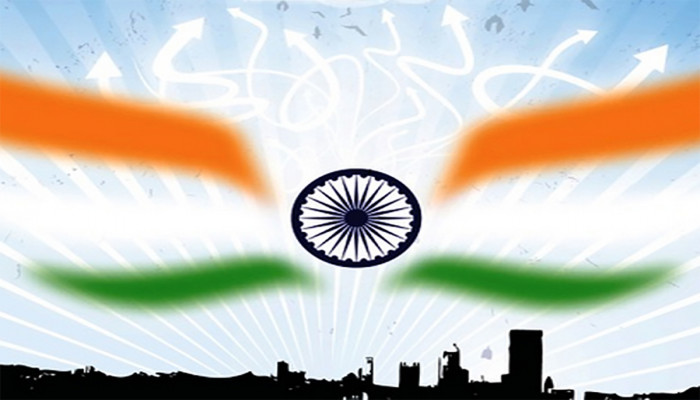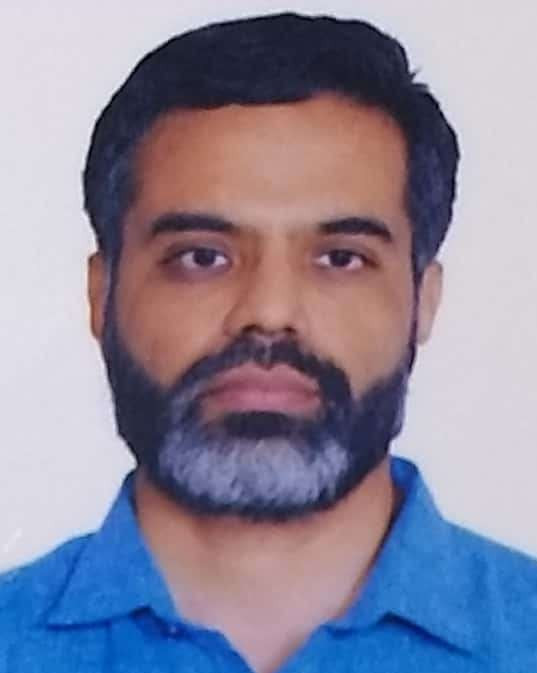75 years of Independence: A Reality Check
- In Current Affairs
- 07:54 PM, Aug 23, 2021
- Venkatesh Kikkeri
15th August 1947 is the day Bharat attained freedom from the colonial British rule. Bharat was now an Independent Nation aspiring to charter its own journey amongst many countries on the globe, driven by its own people and their dreams. The struggle for freedom was bloody to say the least. Far too many lives were lost as also a separate nation, Pakistan was carved out. Akhand Bharat was partitioned on the basis of religion and a separate Islamic nation, Pakistan came into being. More than 1200 years of foreign rule, commencing with the invasion by Islamic bigots during the 700 CE, had come to an end. Bharat was plundered to its bones during these 1200 years in every aspect. What was once Sindhu Saraswathi Civilisation is now India, a free Nation.
On 15th August 2021 the 75th anniversary of Independence was celebrated. However, are we really independent? Are we still under the influence of a ‘colonial’ hangover? Do we still continue to harbour a ‘slave mentality’? Post 1947 was there a new identity for Bharatiyas or were their identity restored to what it stood 1200 years ago? Have the wounds inflicted deep into our DNA during the more than 1200 years of invasions, occupation, plundering and subjugation been completely healed?
It definitely merits a deeper and broader understanding of the way we function as a Nation to arrive at a conclusive sense of belief that indeed we are “independent”. However, just scratching the tip of the iceberg indicates the ground realities to be entirely different. A few low hanging fruits can be picked to make a beginning.
Constitution of India
The Constitution of India came into effect from 26th January 1950. The Constitution provides for a Parliamentary form of government which is federal in structure with certain unitary features. The Drafting Committee was constituted on 29th August 1947 to prepare a Draft Constitution. This committee concluded its task on 26th November 1949 and on this day the Constituent Assembly adopted the Constitution of India and came into force on 26th January 1950. However, if an independent Bharat was expecting its Constitution to be unique to suit its structure or people, it was not to be.
Our Constitution is heavily borrowed mainly from the Government of India Act of 1935 which in turn received royal assent in August 1935 and was passed by the British Parliament in August 1935! Apart from this many major provisions were borrowed from the British Constitution, Constitutions of Australia, United States of America, Ireland, South Africa, Canada, France, then Soviet Union, Germany and Japan.
Were there no parallels to be drawn from our own rich history which dates back before 12209 BCE, the dating of Ramayana war by Historian Nilesh Nilkanth Oak, (just to indicate the span of our civilisation)? Sad, the Constitution of Independent Bharat could not borrow a leaf from our history which was witness to the Sri Rama Rajya during the Ramayana, the Raj Dharma during the Mahabharata, the efficient ruling and administration of the Cholas, Pallavas, Rajputs, Marathas, Mauryas, Vijayanagara Empire, the Kautilya’s Arthashastra, the Manusmriti, etc.
Further was the Constitution of Independent India ratified by “We, the People”? The answer is in the negative. Constitution of a free Bharat not ratified by its citizens was certainly not an indicator of a democratic Bharat especially when it is glorified that democracy is by the people, for the people and of the people.
When the Constitution first came into force on the 26th January 1950, the Preamble commenced thus:
“WE, THE PEOPLE OF INDIA, having solemnly resolved to constitute India into a SOVEREIGN DEMOCRATIC REPUBLIC and to secure to all its citizens.......”
However, vide the Constitution (Forty-second Amendment) Act, 1976 and with effect from 3rd January 1977, the words SOVEREIGN DEMOCRATIC REPUBLIC was substituted by SOVEREIGN SOCIALIST SECULAR DEMOCRATIC REPUBLIC. It needs to be noted here that it was during the period of emergency, the darkest chapter in our history post 1947, that this particular Constitutional Amendment Act was passed adding Socialist and Secular credentials to our Nation which believed in वसुधैव कुटुम्बकं (Vasudhaiva Kutumbakam meaning the entire world is one family) and thereby which was inherently secular (a term imported from Christian Europe and not having any Bharatiya origin whatsoever but used here for the sake of discussion) and believed in equality before the Supreme! It is also interesting to note that some of the provisions of emergency were borrowed from the Government of India Act, 1935 and from the Constitution of Germany! So, isn’t this a carryover of the colonial mindset?
Islamic and Christian invasion - Denial of true history and an unwanted legacy:
The Islamic conquest of Bharat commencing from 700 CE is one of the darkest chapters in our history. As American historian Will Durant echoes, “Islamic conquest of India is probably the bloodiest story in history”. The Islamic invaders were on an ethnic cleansing spree which continued for more than a thousand years as an act of Jihad, the holy war. The invasions saw a long series of attacks and massacres of thousands of people as also the destruction of thousands of temples, educational institutions, places of governance etc.
In the name of holy war, women were raped, Sanatanis were converted and those who refused were slaughtered and their wealth looted. Millions of Sanatanis were slaughtered and there can be no parallel to this genocide. Historian K C Lal puts the number of Sanatanis killed during the entire period of Islamic invasions, occupation and their rule of Bharat at “80 million”! This gory history is not told to the citizens of ‘independent India’ where Sanatanis are the majority, still! History has an uncanny habit of repeating itself and unless we learn about our past our future cannot be secure.
Rubbing salt onto the wound, we continue to glorify the Islamic invaders especially the Mughals. Bharat may be the only country on this globe where Islamic invaders responsible for genocide after genocide of Sanatanis are glorified to such an extent that cities, towns, institutions, roads, buildings etc are either named after them or continues to go by the name the invaders adopted. We even cherish their monuments as wonders and protect them according the highest levels of security and legal protection.
Christian missionaries did not fall behind during the British/French/Portuguese occupation. Even they are a revered lot in this country. Invaders and missionaries engaged in proselytising are referred to as Greats and Saints and people raising this issue will be branded as communal. Cities like Allahabad, Ahmedabad, Hyderabad, Secunderabad, etc., educational institutions like St. Xavier’s college, St. Joseph’s college etc., roads like Akbar Road, Lodhi Road in Delhi etc., are not simple names but names of those who perpetrated our gory past. Even our Democracy continues to function from the Parliament built during the British colonial era! Doesn’t this prove our slave mentality? These references are only a sample of a zillion such examples in an Independent Bharat.
Secular, Communal and a Sanatani Bharatiya:
It is quite unfortunate that Sanatanis, who are, as already mentioned in an earlier paragraph, inherently secular (a term imported from Christian Europe and not having any Bharatiya origin whatsoever but used here for the sake of discussion) believing in वसुधैव कुटुम्बकं were forced to don the mask of a ‘secular’ by surreptitiously bringing an amendment to the Constitution. This was on top of denying the Sanatanis their true history thereby resulting in an identity crisis. Can’t the Sanatanis, the majority by population, have a nation of their own with a Sanatani identity? Certainly, it was not the expected outcome of the freedom we attained however though another nation was exclusively carved out on religious basis, as an Islamic nation! A narrative was built to portray that a new nation altogether was born on 15th August 1947 without giving due credit for its glorious past and its core beliefs and strengths. A civilisation was accorded the status of a narrow nation state.
In every sphere of our life there still remains the stain of the invaders as also a colonial legacy be it the Legislature, Executive, Judiciary, Bureaucracy, Education, our Culture & Tradition, the list is endless.
The above are only the proverbial tip of the iceberg. As one delves, there is an ocean of colonial stain to be wiped off clean for which a big churn is indeed needed. Prime Minister of Bharat was absolutely right when he said (in Hindi) "Barah sau saal ki gulami ki maansikta humein pareshan kar rahi hai. Bahut baar humse thoda ooncha vyakti mile, to sar ooncha karke baat karne ki humari taaqat nahin hoti hai”. Translated to English it means “the slave mentality of one thousand two hundred years is troubling us. Often, when we meet a person of a high stature, we fail to muster strength to speak up”.
We need to introspect, rise as a Nation, free of inherent contradictions, conflicts, prejudices and crisis, having our own ‘grand narrative’ to tell and lay a golden path to prosperity for many a generation setting foot on this soil. Radha Bharadwaj, an eminent Writer-Film Director, known for the highly acclaimed movie SpaceMoms, the first and original production on the women engineers of Bharat's Mars Mission, has a very important message in her quote which reads thus, “When the slave will whip himself after the master has long gone, the work of colonialism is complete”. We have whipped ourselves too much for 75 long years and it is time for us to draw curtains and to not allow the objective of colonialism to succeed. Else Independence will only turn out to be a transfer of power.
References:
- Talk by Sri. Sankrant Sanu on Sangam Talks - https://www.youtube.com/watch?v=uY-E-6KsVPg
- https://www.drishtiias.com/printpdf/important-sources-of-the-indian-constitution
- https://www.indiatoday.in/education-today/gk-current-affairs/story/constitution-day-borrowed-features-in-the-indian-constitution-1622632-2019-11-26
- http://164.100.47.193/Refinput/Research_notes/English/04122019_153433_1021204140.pdf
- https://www.india.gov.in/my-government/constitution-india
- https://www.firstpost.com/politics/1200-years-of-servitude-pm-modi-offers-food-for-thought-1567805.html
- https://twitter.com/radhabharadwaj/status/1335617110161072136?s=20
Image source: The Economic Times
Disclaimer: The opinions expressed within this article are the personal opinions of the author. MyIndMakers is not responsible for the accuracy, completeness, suitability, or validity of any information on this article. All information is provided on an as-is basis. The information, facts or opinions appearing in the article do not reflect the views of MyindMakers and it does not assume any responsibility or liability for the same.







Comments